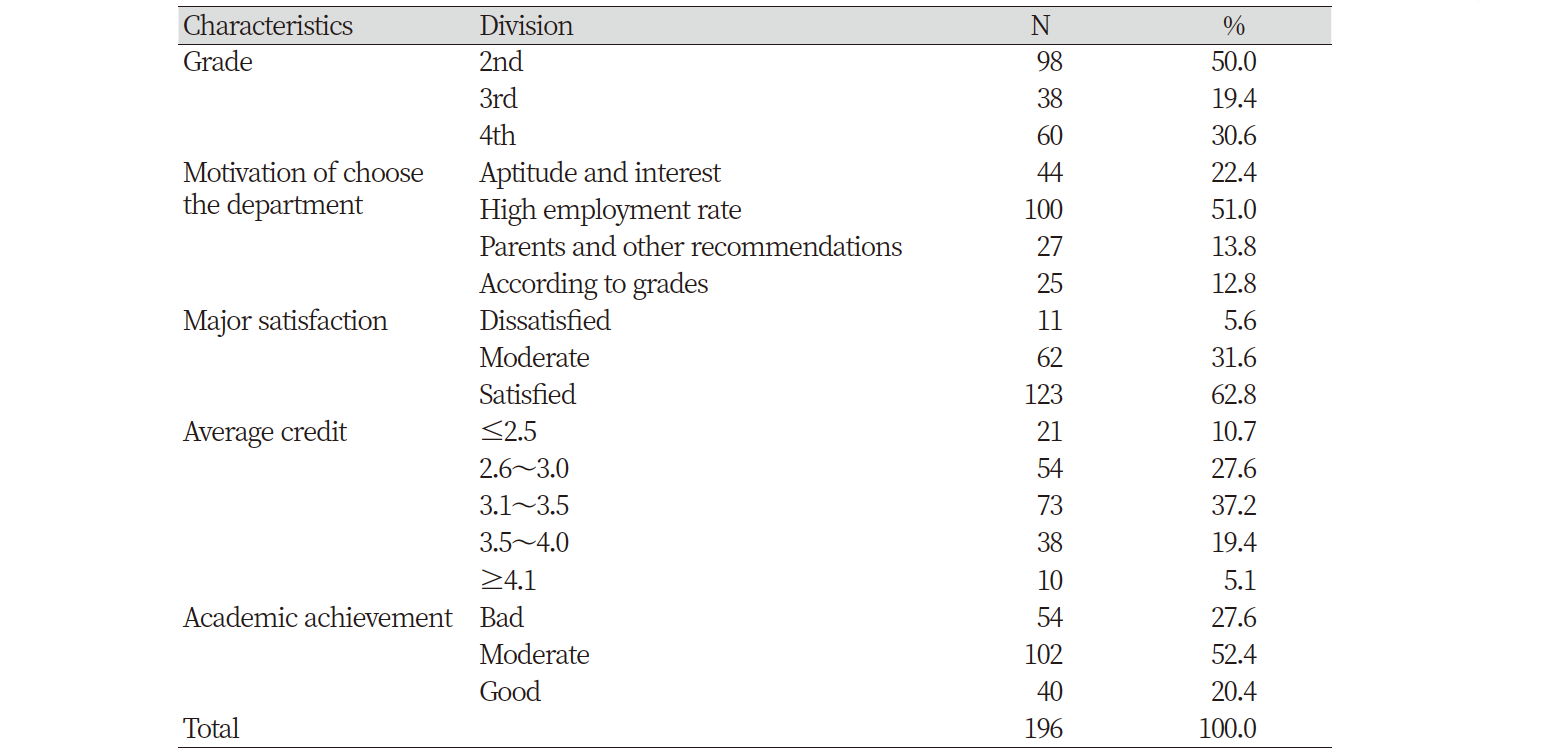Abstract
Objectives: The purpose of this study was to analyze the factors that affect the test anxiety among dental hygiene students, including mental health and academic self-efficacy. Methods: A self-administered questionnaire survey was conducted among dental hygiene students in a metropolitan area from July 21 to July 31, 2020, and finally, 196 copies were statistically analyzed using SPSS 21.0. Results: The mean values of mental health, academic self-efficacy, and test anxiety among the dental hygiene students were 1.47±0.41, 2.99±0.46, and 2.76±0.74, respectively. Mental health was negatively correlated with self-efficacy (r=-0.346,
Figures & Tables



